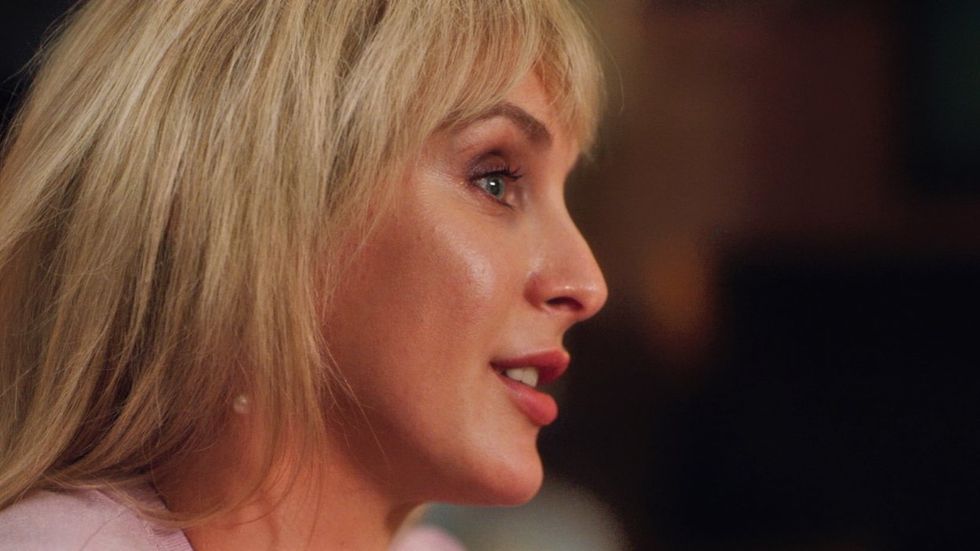Director Zackary Drucker on how 'Enigma' fights trans erasure
Filmmaker and historian Zackary Drucker still remembers the first time she heard the name Amanda Lear. She was 18 and had just moved to New York, where she made a trans friend who was obsessed with disco. Sign up for the Out Newsletter to keep up with what's new in LGBTQ+ culture and entertainment delivered three times a week straight (well) to your inbox!When her friend told her about Lear, Drucker looked her up and thought she was "the most beautiful woman that ever has lived.""It was this image of her, it appears in the film, it was her modeling headshot from 1965 or six, mid-60s. She has drawn-on lashes," Drucker recalls. "And I hung it up on my wall, and as I started my journey as a woman, she was my archetype. She's my original archetype for being who I am today."Now, Drucker gets to share that archetype with the world.In a new documentary, Enigma premiering on HBO this Tuesday, June 24 Drucker explores the lives of two women: Amanda Lear and April Ashley. The two started their careers at the same trans cabaret, Le Carrousel, in Paris, but their lives took completely different paths from there.While Lear was able to keep her trans status a secret and build a successful long-term career in entertainment, Ashley's gender became the focus of a high-profile court case in England, and she was no longer able to get modeling and performing gigs. Lear would become one of the most beloved disco singers in all of Europe, while Ashley became one of the faces of trans rights in the U.K.While Lear is still alive (Ashley sadly passed away in 2021), this isn't recent history. The two of them first became famous in the 1950s, over 70 years ago.For Drucker, the movie is proof positive that trans people have always been here and will always be here."The only offset to the notion that we just popped up 10 years ago is to dive into the archives and to show through tangible examples of these people lived these incredible lives, and they withstood incredible opposition and legislation and police violence, and in many cases, incarceration, mental, being committed to institutions," she says. "And yet nothing will stop us from being born into the world. Drucker says that she, like many trans people, battled depression, anxiety, and suicidal ideation. However, in her thirties, she made the conscious decision to "stay in this game of life for as long as I possibly can." Connecting with trans elders has helped her to feel more grounded in her survival."At a young age, I realized, okay, these old people are going to teach me how to survive, and it's been a balm for me," Drucker says. "It's like the way out is through gratitude and just trying to collect wisdom. And so that's what's motivated me. And you realize, 'Oh wow, the obstacles that I've navigated are not as extreme as decades ago, as other parts of the world, other parts of the country.' And doing so, we fortify ourselves beyond each other because to be a witness, to listen, to hear, to turn a person's story into a work of art, it's undeniable, and I think that it's why we're here."Drucker hopes her new film can help form some bridges between generations of trans people, which she says will only make the community stronger as a whole."We owe it to ourselves and to each other, to our predecessors and our successors, to celebrate and to create joy and to be confident in our interconnectedness, knowing that in the most dire circumstances and the most devastating, awful circumstances, we can create joy, but joy will never be taken from us," the filmmaker says. "And it feels more important to me personally than ever before, too. I think that there are so many benefits to these times that we can't see right now or that we won't experience until time has passed. Maybe it's greater solidarity with each other and putting aside our small disagreements for bigger goals. You know?"Enigma premieres Tuesday, June 24 on HBO Max.




